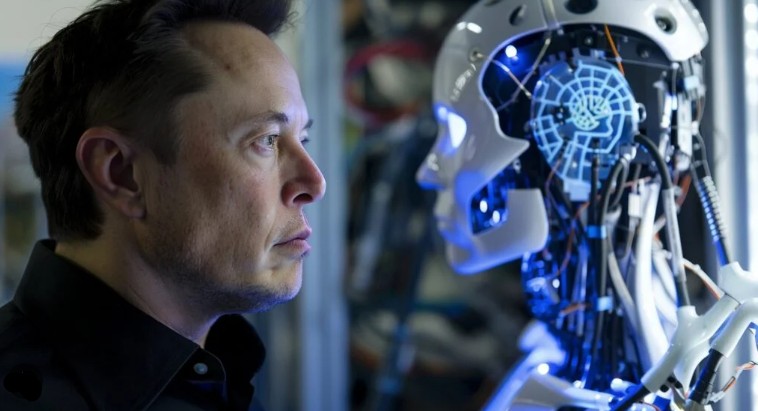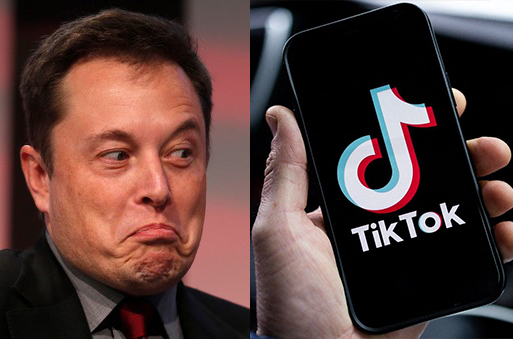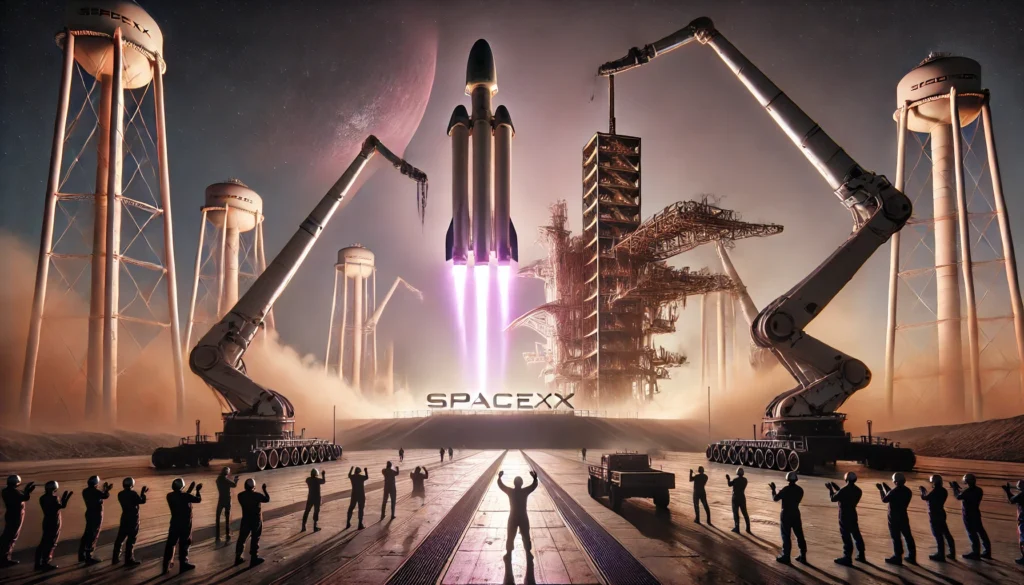
SpaceX Achieves Booster Catch in Landmark Starship Test Flight, Beeple Posts Art to Celebrate
SpaceX has reached another milestone in its space exploration journey with the successful soft landing of its Starship rocket in the Indian Ocean. This achievement marks a significant advancement in SpaceX’s goal to develop a fully reusable rocket system, critical for reducing space travel costs and making interplanetary missions viable.
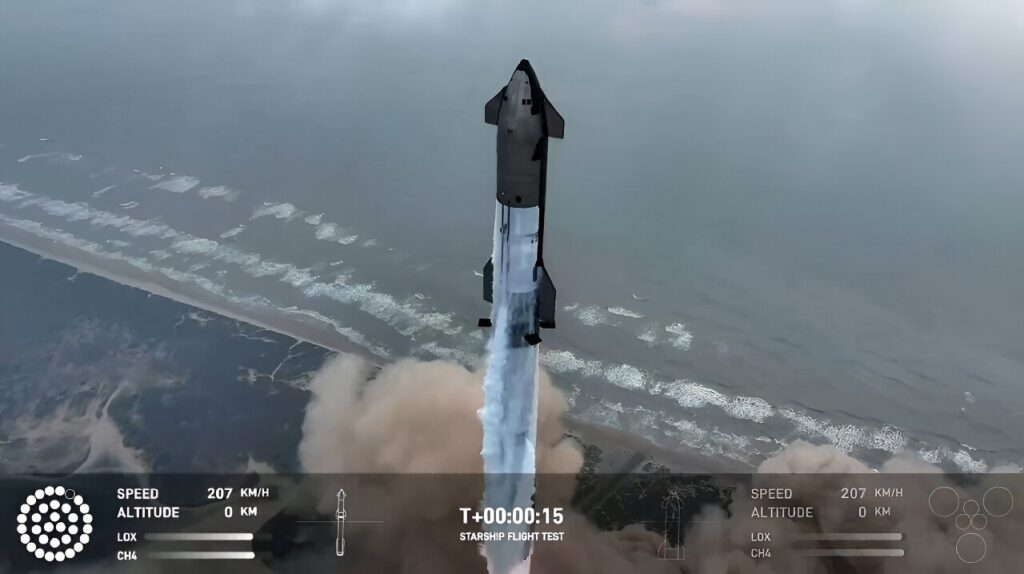
The mission commenced with the Starship lifting off from SpaceX’s Starbase facility in Boca Chica, Texas. The Super Heavy booster, towering at 232 feet (71 meters), was skillfully caught mid-air by SpaceX’s innovative launch tower equipped with “chopsticks” arms. This dramatic mid-air catch, akin to a kangaroo pouch, showcased SpaceX’s engineering prowess.
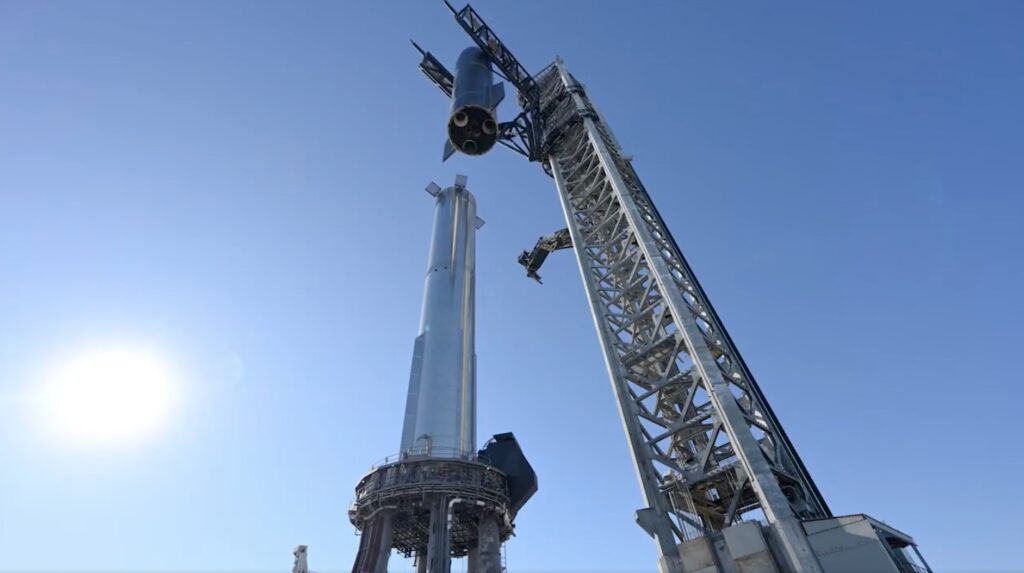
The upper stage of the rocket, known as the “Ship,” completed its mission by executing a precise landing near a buoy in the Indian Ocean. This controlled splashdown demonstrates the significant strides SpaceX has made toward achieving full reusability.
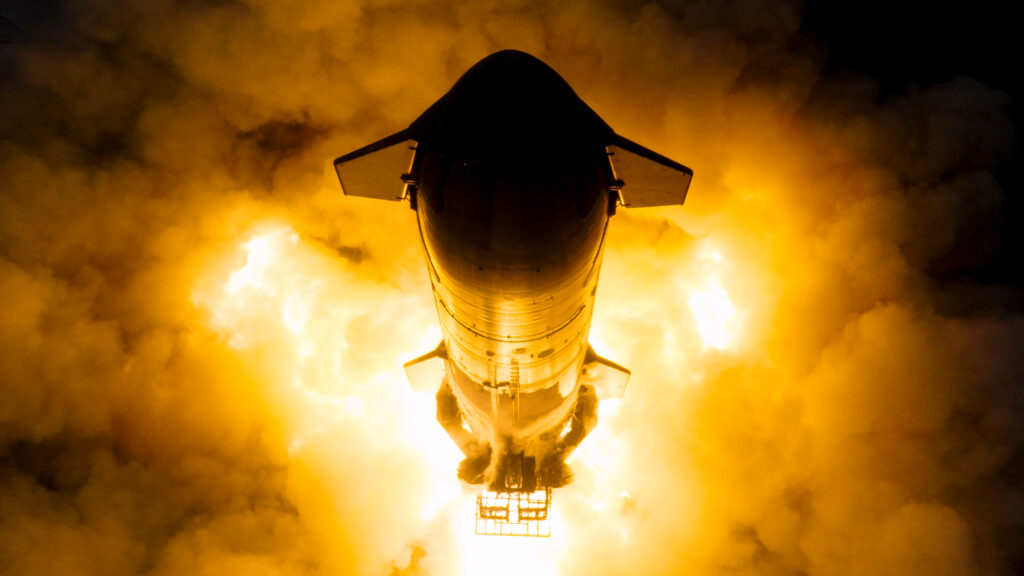
Elon Musk, CEO of SpaceX, celebrated the milestone on social media, emphasizing the critical importance of reusability for reducing the costs of space access. “Achieving full and rapid reusability is essential for making life multiplanetary,” Musk tweeted, highlighting the mission’s success as a crucial step towards this vision.
Ship landed precisely on target!
— Elon Musk (@elonmusk) October 13, 2024
Second of the two objectives achieved. https://t.co/aMnllnkyzP
Despite the triumph, the upper stage did encounter challenges during re-entry, with some heat-protection tiles detaching and structural elements glowing red hot. Nonetheless, the mission was deemed a success, propelling SpaceX further along its path to revolutionizing space travel.
SpaceX has already scheduled its next test flight, dubbed Flight 6, for November 2024. The upcoming mission will attempt to catch the upper stage using the same bold technique as the booster, marking another leap forward in SpaceX’s ambitious plans.
This historic landing not only reinforces SpaceX’s leadership in space innovation but also brings humanity closer to a future where space travel becomes routine and affordable.
